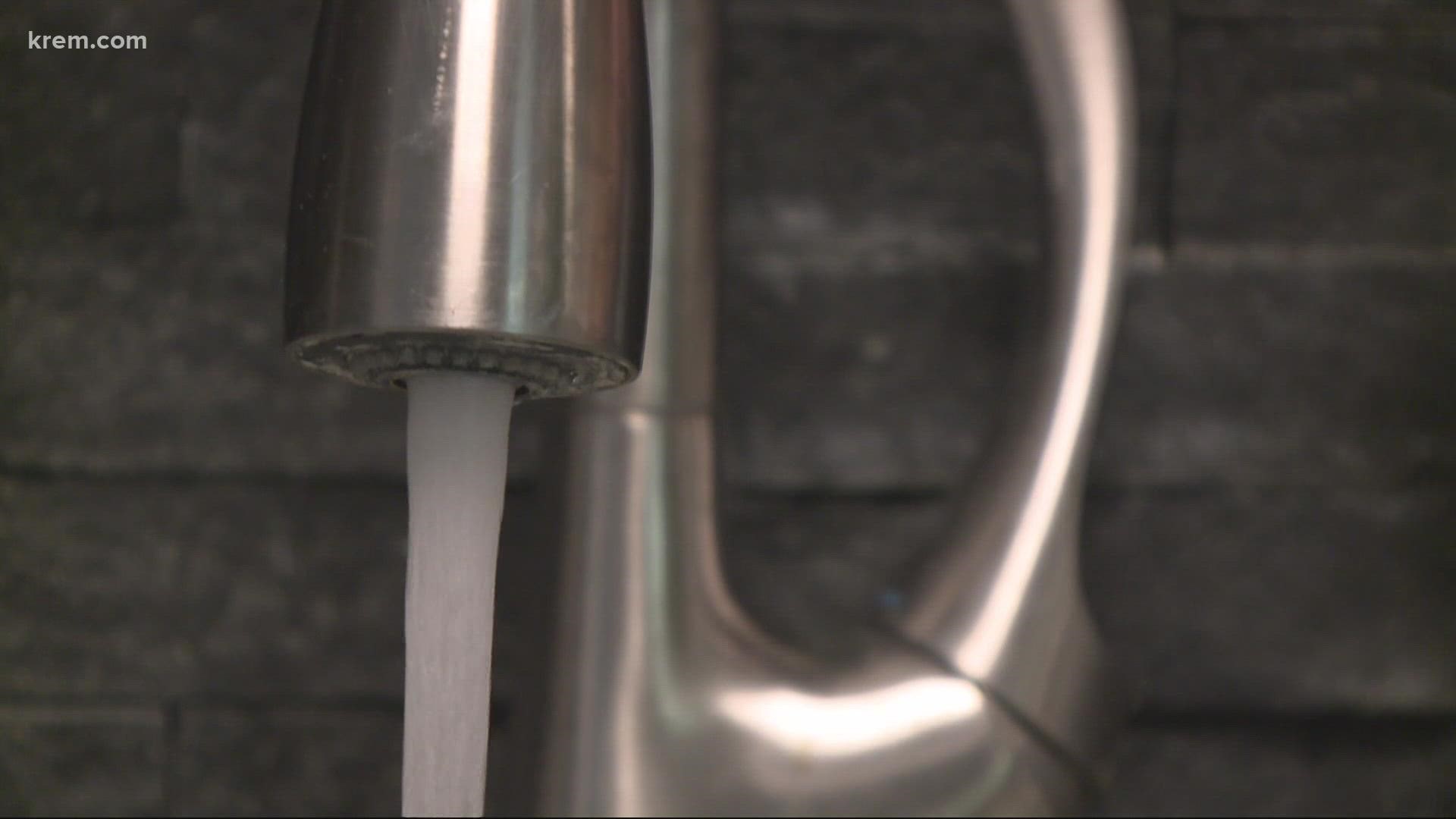AIRWAY HEIGHTS, Wash. — Following 2019 assessments on the impact of contaminated water in Airway Heights, the Centers for Disease Control and Prevention (CDC) and the Agency for Toxic Substances and Disease Registry (ATSDR) announced Thursday that the tap water in Airway Heights is safe to consume.
The CDC and ATSDR collected samples of blood and urine from a group of Airway Heights residents in 2019. Through the assessment, they found the levels of five per- and polyfluoroalkyl substances (PFAS) in residents' blood were higher than national levels, but still met the Environmental Protection Agency's (EPA) 2016 Health Advisory for PFAS.
According to the report, levels of some PFAS in the blood of Airway Heights residents were up to 56 times higher than national levels. The report also found long-time residents had more PFAS in their blood, and that for every year they'd lived in Airway Heights, their levels got higher. That included children who were breastfed or given formula made with tap water.
According to the report, the elevated level of PFAS could be linked to past contamination of the drinking water in Airway Heights, which was caused by chemicals found in fire extinguishing foam and other materials.
Read the full report here:
These chemicals entered the water after Fairchild Air Force Base (FAFB) used aqueous film-forming foam containing PFAS for firefighting training in 2017. The compounds then seeped into groundwater and moved into municipal and private drinking water wells, according to the city of Airway heights.
Since that time, Airway Heights has been purchasing water from the City of Spokane.
In February 2022, the City of Airway Heights accepted $500,000 from the Washington State Office of Drinking Water to replace the city's water system. The money will be used to "perform preconstruction activities for the replacement water source including preliminary design and engineering."
“The City of Airway Heights has been closely monitoring the process of the PFAS exposure assessment and wants to ensure that residents, businesses, and health practitioners have this important information.” said City Manager Albert Tripp. “At the same time, we want to reassure the community that Airway Height’s drinking water is and will remain safe, secure, and reliable."
Following these recommendations from the CDC and ATSDR, Airway Heights residents are invited to attend a virtual information session on March 23 at 6 p.m. to learn more about the PFAS exposure assessment and to ask experts questions. Registration can be completed here.

